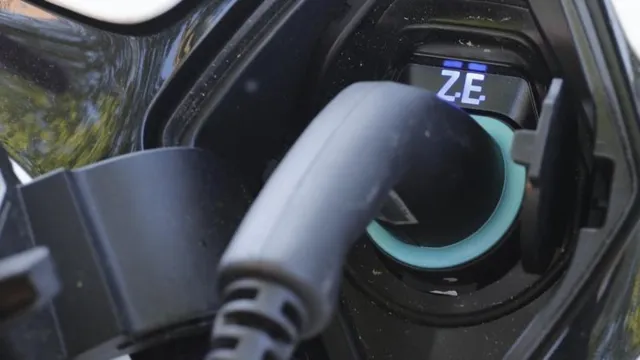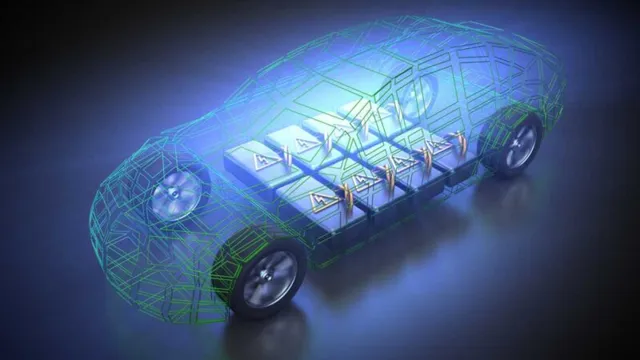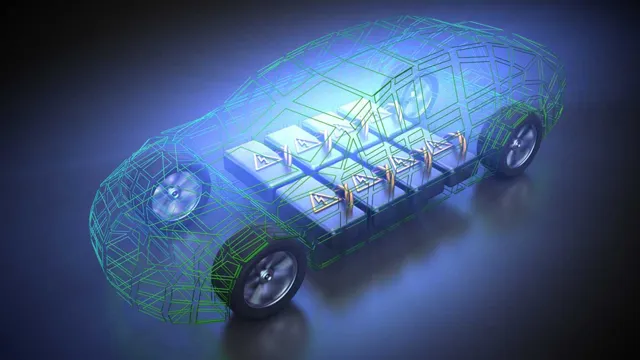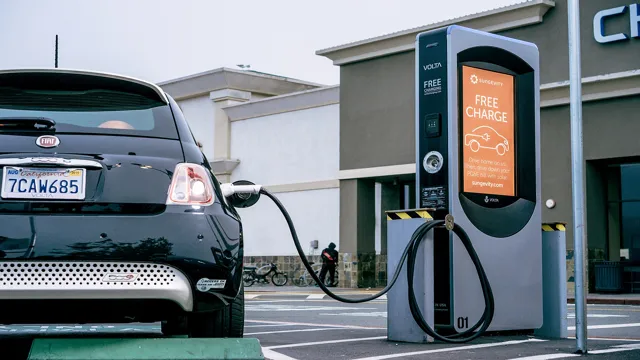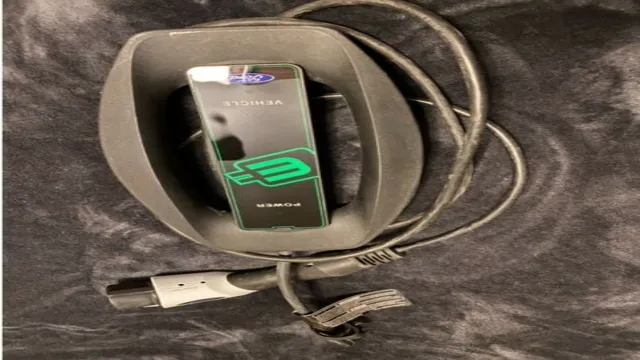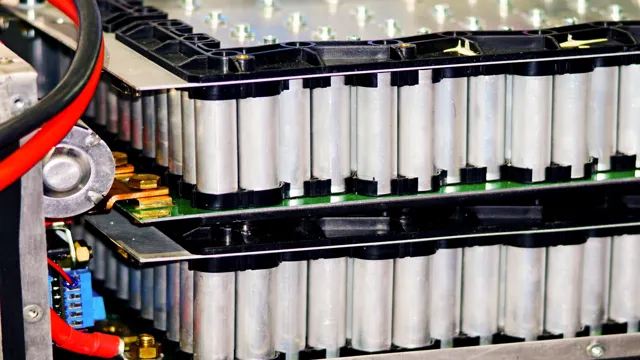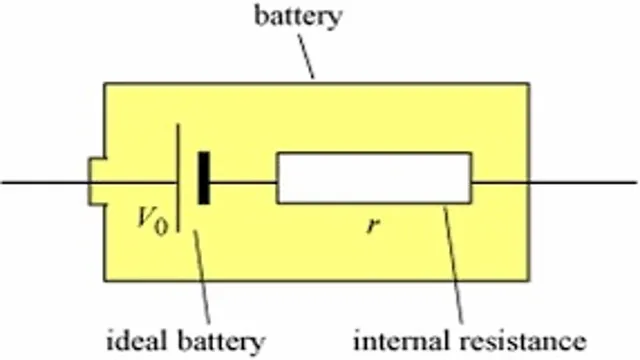Reviving the Power: Exploring the Feasibility of Replacing Batteries in Electric Cars
Electric cars are the future of transportation, there is no doubt about that. They are environmentally friendly, cost-efficient, and require very little maintenance compared to traditional gasoline-powered cars, which makes them an excellent option for anyone who is looking to reduce their carbon footprint. But as with any vehicle, there will come a time when the battery needs replacing.
So what happens when an electric car battery dies, and what are the options for replacing it? Replacing batteries in electric cars is not as straightforward as it is with traditional cars. It’s important to understand that electric car batteries degrade over time, much like any other battery. The lifespan of an electric car battery can vary depending on the car’s make and model, but most manufacturers claim they will last anywhere between 8 to 10 years.
However, it’s possible for an electric car battery to need replacing before this time due to factors such as aggressive driving, high temperatures, and frequent fast charging. So, what are the options for replacing an electric car battery? There are a few options available, each with its own set of advantages and disadvantages. Some manufacturers offer battery replacement programs where you can swap out your old battery for a new one at an authorized dealership.
However, these programs can be costly, with estimates ranging from $5,000 to $15,000 depending on the make and model of the car. Another option is to replace the battery cells instead of the entire battery pack, which can be a more cost-effective solution. However, this option is only viable if the battery cells are the only issue with your electric car battery.
It can be difficult to identify if the cells are the root of the problem, which is why it’s essential to have your car diagnosed by a professional. In conclusion, replacing batteries in electric cars requires careful consideration. It’s important to be aware of the factors that can affect the lifespan of your battery, and to explore all possible options before committing to a replacement.
Whether you choose to replace the entire battery pack or replace the battery cells, it’s essential to ensure that you’re making an informed decision that’s best for you and your electric car.
The Need for Replacing Batteries
When it comes to electric cars, a common question that pops up is whether or not their batteries can be replaced. The answer is yes, they can be replaced. However, it is important to note that electric car batteries are not like the typical AA batteries found in regular household items.
The batteries in electric cars are much larger and more complex, requiring specialized knowledge and equipment. Additionally, the cost of replacing an electric car battery is significantly higher than replacing a regular car battery. Nonetheless, it is still a viable option for those who have an older electric car with a deteriorating battery.
Some manufacturers even offer battery replacement programs for their electric cars. The great thing about replacing an electric car battery is that it can extend the life of your car and improve its overall performance. In the end, while the cost may be higher, replacing an electric car battery is worth considering if it means keeping your electric car running for years to come.
Limited Lifespan of Batteries
Replacing batteries is something every device owner will have to do eventually. Batteries have a limited lifespan and will eventually lose their ability to hold a charge. This is usually due to a combination of factors, such as age, usage, and temperature.
As a result, it is important to check the battery life of your devices regularly and replace them as needed to ensure they function properly. Failure to do so can lead to frustration, as your device may die unexpectedly or perform poorly. It’s like having a car with a worn-out engine.
If you don’t replace the engine, your car won’t function properly. Similarly, if you don’t replace the battery, your device won’t work properly. Always make sure to replace your batteries when needed to keep your devices running smoothly and avoid any unnecessary inconvenience.
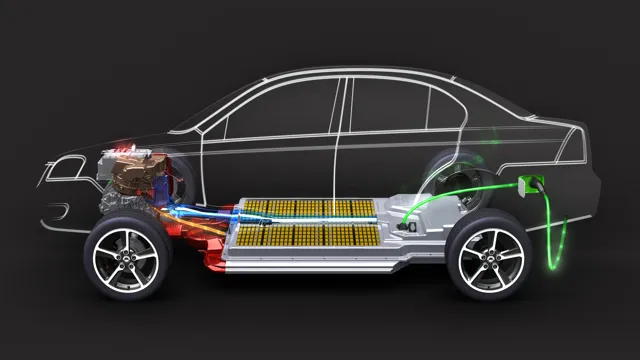
Impact of Extreme Temperatures
When it comes to extreme temperatures, battery technology can take a hit in performance. Whether it’s cold winter temperatures or scorching hot summers, batteries tend to struggle to maintain their efficiency and capacity. This issue is particularly problematic when it comes to electric cars or devices that rely on lithium-ion batteries.
As these batteries are tasked with providing long-lasting power, it’s important that they remain reliable and efficient throughout the year. The need for replacing batteries is apparent in these extreme circumstances, as opposed to constantly recharging them which can be costly and time-consuming. Investing in newer batteries or implementing temperature control systems is essential in reducing the impact of extreme temperatures on battery performance.
It’s vital that manufacturers take this into account while creating newer battery technologies, in order to ensure greater durability and efficiency. If you’re looking to invest in a device that’s reliant on battery power, it’s important that you keep the impact of extreme temperatures in mind and choose a model that has reliable and efficient battery technology built-in.
Replacing Batteries: Process and Cost
One of the major concerns of those looking to buy an electric car is the potential need to replace the battery. While electric car batteries are designed to last a long time, they will eventually need to be replaced. While the process of replacing a battery varies between manufacturers, it generally involves removing the old battery and installing a new one.
The cost of replacing a battery can be high, with estimates ranging anywhere from $3,000 to $10,000 depending on the make and model of the car. However, some manufacturers offer warranties or incentives for battery replacements, which can help offset the cost. Overall, while it is possible to replace batteries in electric cars, it is important to consider the potential cost and factors such as warranty coverage before making a purchase.
Retrofitting vs. Replacing Batteries
Replacing Batteries: Process and Cost Replacing batteries can be a costly affair depending on the type of battery and the vehicle model. The process involves removing the old battery and replacing it with a new one. In some cases, the battery replacement may also require reprogramming or recalibration of the vehicle’s electronic system to ensure proper functioning.
The cost of battery replacement varies depending on the type, brand, and size of the battery. Typically, the cost of battery replacement can range from a few hundred dollars to thousands of dollars, depending on the model of the vehicle and the battery’s energy capacity. It is essential to ensure that the battery is replaced by a qualified professional to prevent any damage to the vehicle’s electronic system.
While battery replacement may seem expensive, it can be a better option than retrofitting depending on the age and condition of the vehicle’s existing battery. In any case, it is crucial to weigh the pros and cons of each option before making a decision.
Battery Replacement Cost Estimation
Replacing a battery in your electronic device is a process that can vary in both cost and time, depending on the specific make and model. Typically, the cost of battery replacement is determined by the type of battery required, the complexity of the device, and the availability of replacement parts. For example, replacing the battery in an iPhone can cost anywhere from $50 to $100, while a laptop battery replacement may cost $100 to $200.
However, if the device is under warranty, the battery replacement cost may be covered by the manufacturer. It’s also important to note that replacing a battery can be a complex process, potentially requiring specialized tools and technical knowledge. It’s generally recommended that battery replacements be performed by trained professionals to ensure optimal safety and device performance.
Warranty Coverage for Battery Replacement
When it comes to replacing the battery in your device, it’s important to know the process and cost involved. First off, check your device’s warranty coverage to see if the battery replacement is included. Generally, warranties cover battery replacement for defects or malfunctions, but not for normal wear and tear or user-induced damage.
If your device is still under warranty, take it to the authorized service center and they will replace it for free. However, if your warranty has expired or doesn’t cover battery replacement, you will have to pay for it out of pocket. The cost varies depending on the device and service center, but it can range from $50 to $150.
To avoid paying for battery replacements frequently, it’s recommended to use the device optimally and take good care of its battery life. For instance, avoid overcharging, exposing it to extreme temperatures, or using incompatible chargers. By doing so, you can extend your device’s battery life and save money in the long run.
Advancements in Battery Technology
One question that often arises with the rise of electric cars is whether their batteries can be replaced. The answer is yes, but it’s not as simple as swapping out a regular car battery. The advancements in battery technology have made electric car batteries more efficient and long-lasting, but they’re also much larger and more complex.
Replacing one can be a costly and time-consuming process, involving specialized expertise and equipment. Additionally, many electric car manufacturers offer warranties on their batteries, which cover replacement in the event of any defects or malfunctions. In short, while it is possible to replace electric car batteries, it’s not a straightforward process, and for the most part, it’s best left to the professionals.
Longer Battery Life Expectancy
Advancements in battery technology have led to longer battery life expectancy for various devices such as smartphones, laptops, and electric vehicles. With the introduction of new lithium-ion batteries, the battery life of these devices has significantly improved. These batteries are not only more efficient but also have a higher energy density and can operate at higher temperatures.
Additionally, improvements in battery management systems have advanced battery life expectancy by controlling factors that lead to degradation. Battery health is vital, and the longevity of batteries is essential for sustainability. The increasing awareness of this has led to the production of more durable batteries that can sustain more charge-discharge cycles.
All these advancements are significant for the industry, as it ensures long-term battery life, reducing the need for frequent replacements and promoting sustainability.
Improved Battery Recycling Practices
The development of improved battery recycling practices has always been a pressing matter as battery technology continues to advance rapidly. With the growing awareness of the harmful environmental impacts of improper battery disposal, companies and governments have been pushing for more sustainable solutions. Recent advancements in battery recycling technology have equipped recyclers with the ability to recover up to 95 percent of the materials used in batteries.
Recovering critical elements such as cobalt, nickel, and lithium significantly reduces the need for mining and reduces greenhouse gas emissions. With battery technology continuing to grow and improve daily, the need for sustainable solutions has never been more important. It’s vital for us to acknowledge the importance of battery recycling and play our part in ensuring sustainable success.
Final Thoughts
If you’re considering buying an electric car, it’s normal to have questions about the longevity of the battery and whether or not it can be replaced. The good news is that batteries in electric cars can be replaced, although the process can be expensive. The lifespan of an electric car battery varies depending on factors such as usage, weather, and maintenance.
Some batteries can last up to 10 years or more, while others may need to be replaced after just a few years. Replacing a battery in an electric car can cost thousands of dollars, depending on the make and model. However, as technology advances and becomes more affordable, battery replacement costs are likely to decrease.
In the meantime, it’s important to take care of your electric car battery by keeping it charged between 20% and 80% and avoiding extremes in temperature. By properly maintaining your battery, you can help extend its lifespan and avoid the need for an expensive replacement.
Conclusion
In the race towards a sustainable future, electric cars have emerged as a promising solution for reducing our carbon footprint. However, the question of whether batteries in electric cars can be replaced remains a crucial aspect to consider. While the answer is yes, it’s not as simple as changing a dead AA battery.
Battery replacement requires specialized equipment and skilled technicians, and the cost of replacement can be quite high. Despite these challenges, it’s important to remember that electric cars are still a relatively new technology, and as advancements continue to be made, the process of battery replacement is likely to become more streamlined and cost-effective. So while we may not have all the answers yet, one thing is clear – the future of electric cars is bright, and it’s only a matter of time before we find the perfect solution to the battery replacement conundrum.
“
FAQs
How often do batteries in electric cars need to be replaced?
The lifespan of electric car batteries can vary depending on factors such as usage and climate, but most manufacturers offer warranties for a certain number of years or miles. It is typically recommended to replace the battery pack after the warranty period has ended.
Is it possible to replace a single battery in an electric car?
Yes, it is possible to replace a single battery cell or module in an electric car. However, this can be expensive and may not always be recommended, as it can potentially affect the performance and lifespan of the other batteries in the pack.
Can I replace the battery in my electric car myself?
It is generally not recommended for individuals to attempt to replace the battery in an electric car themselves. This is because it requires specialized knowledge and equipment, and can be dangerous due to the high voltage involved.
How much does it cost to replace the battery pack in an electric car?
The cost of replacing the battery pack in an electric car can vary depending on the make and model of the vehicle, as well as the specific battery type and capacity. Some estimates suggest it could cost anywhere from a few thousand to tens of thousands of dollars.
